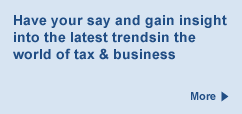High Income Child Benefit Charge
Newsletter issue - November 2018.
The High Income Child Benefit Charge (HICBC) is a tax charge which applies where the 'adjusted net income' of a taxpayer or their partner is more than £50,000 in a tax year, and they or their partner receive child benefit. The charge is equal to one percent of a family's Child Benefit for every extra £100 of income that is over £50,000 each year. If an individual's income is over £60,000, the charge will equal the total amount of the Child Benefit.
Importantly, the charge does not only apply to the recipient of child benefit or the parents of the child in respect of whom child benefit is paid - it can also affect the partner of someone who receives child benefit, even if the child is not theirs.
Broadly, 'adjusted net income' is total taxable income less certain tax reliefs, for example, trading losses (for the self-employed), Gift Aid charity donations, and pension contributions.
So, for example, if 'adjusted net income' is £58,000, the HICBC will be 80% of the child benefit received.
Unfortunately there is currently a degree of unfairness in the system. In determining whether the charge applies, an individual's income will be considered in isolation to assess whether it exceeds the £50,000 trigger point. This means that, a couple earning £49,000 each (£98,000 in total) will escape the charge, whereas a single parent earning £60,000 will have to repay any child benefit in full.
Employed individuals who are liable to pay the charge, and normally pay tax through PAYE, will need submit a Self Assessment tax return to HMRC each tax year. The highest income earner should put the Child Benefit payments on their Self Assessment tax return for each year they get them. This does however, mean that the person liable to pay the charge may not be the person who actually received it the child benefit payments - a feature which unfortunately contradicts the principles of independent taxation.
Further guidance on the HICBC can be found here.
 Cookies are small text files that are stored on your computer when you visit a website. They are mainly used as a way of improving the website functionalities or to provide more advanced statistical data.
Cookies are small text files that are stored on your computer when you visit a website. They are mainly used as a way of improving the website functionalities or to provide more advanced statistical data.



















